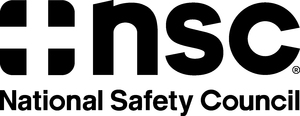White paper examines solutions to address the most prevalent workplace injury, musculoskeletal disorders
WASHINGTON, Sept. 14, 2022 /PRNewswire/ -- Musculoskeletal disorders, or MSDs, are the most common cause of disability, involuntary retirement and limitations to gainful employment. Recognizing the need to address this prevalent workplace safety concern, the National Safety Council, America's leading nonprofit safety advocate, released a new white paper today: Preventing Work-Related Musculoskeletal Disorders: A Systematic Review of Current Interventions and Future Research Directions. Published through its MSD Solutions Lab initiative, the report uncovers many effective interventions used to prevent and reduce the impact of these injuries on the job.
In 2020, NSC reported the private sector experienced more than 247,000 MSD injuries resulting in days away from work. Aside from the human toll and cost for workers themselves, MSDs in the private sector cost businesses nearly $17 billion a year, according to the Liberty Mutual Workplace Safety Index. The MSD Solutions Lab, a groundbreaking initiative established in 2021 by NSC with Amazon (NASDAQ: AMZN), aims to solve this omnipresent safety challenge and reduce these risks and subsequent injuries by 25% by 2025 through the MSD Pledge.
"MSDs significantly undermine business efficiencies and workers' abilities to live their fullest lives — and more must be done to reduce these chronic, debilitating injuries," said Paul Vincent, NSC executive vice president of workplace practice. "This white paper seeks to offer solutions to this pervasive issue based on the latest research by providing organizations of all sizes with promising intervention strategies to help prevent these injuries."
The report references nearly 60 scientific studies and academic publications after initially identifying 13,500 potential articles on the topic. It examines interventions across the top 10 afflicted industries to determine safety initiatives that are most effective at reducing MSDs. Notably, the publication found that, consistent across multiple studies, interventions including the use of assistive devices, exoskeletons or employer-backed physical activity programs have the potential to be effective at reducing MSD discomfort, pain and injury. Programs that coupled physical modifications with cognitive processes and organizational change management forms of prevention were shown to have higher levels of effectiveness than those focusing on physical modifications alone.
"MSD prevention is not a one-size-fits-all approach, which is why it's critical for employers to continually examine their ergonomics program initiatives and involve and listen to their workers when doing so. This white paper reinforces the fact that physical modification interventions are better when implemented in conjunction with appropriate change management, coaching and training strategies," said Julia Abate, executive director, Ergonomics Center at North Carolina State University.
The MSD Solutions Lab also revealed findings related to the effectiveness of commonly adopted MSD interventions, prompting the call for more extensive research in these areas:
- Using innovative product designs, such as active suspension seats, as well as the right patient handling equipment and devices have shown the potential to reduce exposure to MSD risks.
- While wearables and exoskeletons are perceived to have many workplace benefits, some studies cite adverse effects on body parts not stabilized by the exoskeleton, or irritation on the body parts fitted to the device, thus highlighting a need for more research before widespread implementation.
- Further research is needed to expand upon MSD prevention measures among diverse populations.
- In addition, physical activities such as stretching, walking, yoga and Pilates may be viable solutions for providing workers with relief from musculoskeletal pain, but more research is needed to understand their effectiveness across various industries.
To learn more about the MSD Solutions Lab and this research, register for the 2022 NSC Safety Congress & Expo and attend the Addressing Musculoskeletal Disorders in the Workplace panel. You can also visit nsc.org/msd.
The MSD Solutions Lab is committed to democratizing the most current, rigorous research findings to help create safer workplaces for all. However, research into the state of MSD interventions is ongoing and subject to change in the presence of newly introduced data and publications. Any questions related to research methodologies and findings in this publication may be directed to [email protected].
The National Safety Council is America's leading nonprofit safety advocate – and has been for more than 100 years. As a mission-based organization, we work to eliminate the leading causes of preventable death and injury, focusing our efforts on the workplace, roadway and impairment. We create a culture of safety to not only keep people safer at work, but also beyond the workplace so they can live their fullest lives.
Connect with NSC:
Facebook
Twitter
LinkedIn
YouTube
Instagram
SOURCE National Safety Council

WANT YOUR COMPANY'S NEWS FEATURED ON PRNEWSWIRE.COM?
Newsrooms &
Influencers
Digital Media
Outlets
Journalists
Opted In





Share this article